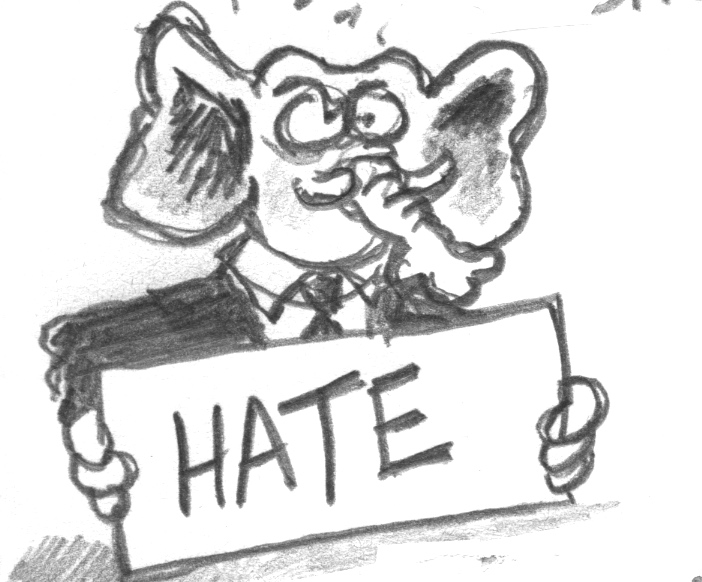
(Editor’s Note: This is an important article. If you want to understand the madness that has taken root in Washington and how to counter it, please follow the link below and read the whole article. What is happening stretches way, WAY beyond party politics. – Mark L. Taylor)
By Bill Blum
HuffPost (5/8/17)
I don’t always agree with Bill Maher (witness his views on Islam and the death penalty), but the comedian was at his best on the April 28 installment of “Real Time,” his Friday night HBO talk show. In both his opening interview with Massachusetts Democratic Sen. Elizabeth Warren and his closing “New Rules” monologue, Maher admonished liberals to stop trying to win over Trump voters, especially his white working-class backers, with facts.
“You’re wasting your breath,” Maher quipped. “Trump supporters aren’t changing their minds because the problem isn’t in the mind. It’s lower. It’s emotional. He could have Ann Frank’s skeleton in his closet. They’d all vote for him again.”
“There is a pressing need to appreciate the full gravity of the hatred Trump represents. Attitudes of hate among Trump’s base cannot be assessed simply as a regrettable but rational response to the depredations of Wall Street and globalization, as Elizabeth Warren and even Bernie Sanders have argued. They are decidedly more than that.”
True to Maher’s observations, notwithstanding Trump’s buffoonish ineptitude on the job and the many ways he has already undermined the objective interests of his working-class supporters—appointing a cabinet stocked with right-wing billionaires and zealots committed to destroying public education and environmental protections; promoting a tax plan that is a shameful giveaway to the wealthy; pushing an Obamacare replacement bill that will strip millions of health insurance; backing proposed legislation that will end overtime pay, to cite just four initiatives—the president’s GOP base hasn’t deserted him. To the contrary, despite an overall approval rating that hovers at historic lows just above 40 percent, only 2 percent of those who voted for Trump in November say they now regret doing so, according to a Washington Post/ABC poll released on April 23.
If anything, in focusing on emotions, Maher touched only the surface of a complex and critically important dynamic that to date has left activists and pundits flummoxed, stunned and appalled. The question thus arises: If the key to understanding Trump’s core support lies in grasping its emotional underpinnings, what kind of emotions or attitudes are at work?
Is the thrust of Trump’s allure based on racism? Is it a derivative of misogyny? Is it related to the fear of changing demographics, and the frustrations and anger engendered by the economic losses inflicted by globalization and neoliberalism?
Clearly, all of these attitudes are very much in play across the land. I’ve written before in this column of the widespread appeal on the right of “racial and gender-based nostalgia’”—the longing for a mythologized past that harkens back to the pre-civil rights era following World War II.
Channeling mythology
Trump’s “Make America Great Again” campaign slogan masterfully channeled this mythology. At the heart of Trump’s presidential run was a hyper-nationalist vision of America drawn from distorted allusions to the wisdom of the founding fathers, the infantile narcissism and individualism of Ayn Rand and, on a more mundane level, patriarchal 1950s sitcoms like “Father Knows Best.” In the vision, America prevails über alles internationally, while white Christian men hold all positions of authority at home, and women and racial minorities happily accept their second-class citizenship.
Finally, and most important of all, in the spirit of Freud’s Eros, the left will have to fashion and promote a positive, life-affirming vision of the future to rival and displace the death instinct behind Trump’s “Make America Great Again” mantra.
But in the wake of Trump’s first three months in office and prompted by Maher’s musings, I’ve come to think there’s something far deeper going on at an emotional level among Trump voters.
What is that something? Bluntly put, it’s this: Trump’s base has given him unwavering support because he professes to hate the same people, institutions and values they hate.
I’m talking about hatred of immigrants and Muslims (the all-purpose sociological “others,” who can be easily scapegoated as the source of our collective miseries); distrust of the press and the “fake” media; rejection of science and the disquieting truths it pursues; distain for judges and the rule of law, and the repudiation of civil rights. Many Trump voters also loathe the super-rich, having been flimflammed into believing Trump, one of the gaudiest and most predacious men on the planet, isn’t part and parcel of the despised global elite.
Sigmund Freud understood what is going on now
Hate is central to Trump’s power, and for good reason: Hate is a primal passion. Hate is part of our inherent makeup. We’re hard-wired for it and can never entirely free ourselves from its grip. …
(Commoner Call cartoon by Mark L. Taylor, 2017. Open source and free to use with link to www.thecommonercall.org )
